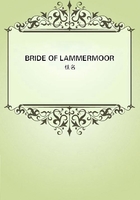
第9章
"Your characters," he said, "my dear Pattieson, make too much use of the gob box; they patter too much (an elegant phraseology which Dick had learned while painting the scenes of an itinerant company of players); there is nothing in whole pages but mere chat and dialogue.""The ancient philosopher," said I in reply, "was wont to say, 'Speak, that I may know thee'; and how is it possible for an author to introduce his personae dramatis to his readers in a more interesting and effectual manner than by the dialogue in which each is represented as supporting his own appropriate character?""It is a false conclusion," said Tinto; "I hate it, Peter, as Ihate an unfilled can. I grant you, indeed, that speech is a faculty of some value in the intercourse of human affairs, and Iwill not even insist on the doctrine of that Pythagorean toper, who was of opinion that over a bottle speaking spoiled conversation. But I will not allow that a professor of the fine arts has occasion to embody the idea of his scene in language, in order to impress upon the reader its reality and its effect. On the contrary, I will be judged by most of your readers, Peter, should these tales ever become public, whether you have not given us a page of talk for every single idea which two words might have communicated, while the posture, and manner, and incident, accurately drawn, and brougth out by appropriate colouring, would have preserved all that was worthy of preservation, and saved these everlasting 'said he's' and 'said she's,' with which it has been your pleasure to encumber your pages."I replied, "That he confounded the operations of the pencil and the pen; that the serene and silent art, as painting has been called by one of our first living poets, necessarily appealed to the eye, because it had not the organs for addressing the ear;whereas poetry, or that species of composition which approached to it, lay under the necessity of doing absolutely the reverse, and addressed itself to the ear, for the purpose of exciting that interest which it could not attain through the medium of the eye."Dick was not a whit staggered by my argument, which he contended was founded on misrepresentation. "Description," he said, "was to the author of a romance exactly what drawing and tinting were to a painter: words were his colours, and, if properly employed, they could not fail to place the scene which he wished to conjure up as effectually before the mind's eye as the tablet or canvas presents it to the bodily organ. The same rules," he contended, "applied to both, and an exuberance of dialogue, in the former case, was a verbose and laborious mode of composition which went to confound the proper art of fictitious narrative with that of the drama, a widely different species of composition, of which dialogue was the very essence, because all, excepting the language to be made use of, was presented to the eye by the dresses, and persons, and actions of the performers upon the stage. But as nothing," said Dick, "can be more dull than a long narrative written upon the plan of a drama, so where you have approached most near to that species of composition, by indulging in prolonged scenes of mere conversation, the course of your story has become chill and constrained, and you have lost the power of arresting the attention and exciting the imagination, in which upon other occasions you may be considered as having succeeded tolerably well."I made my bow in requital of the compliment, which was probably thrown in by way of placebo, and expressed myself willing at least to make one trial of a more straightforward style of composition, in which my actors should do more, and say less, than in my former attempts of this kind. Dick gave me a patronising and approving nod, and observed that, finding me so docile, he would communicate, for the benefit of my muse, a subject which he had studied with a view to his own art.
"The story," he said, "was, by tradition, affirmed to be truth, although, as upwards of a hundred years had passed away since the events took place, some doubts upon the accuracy of all the particulars might be reasonably entertained."When Dick Tinto had thus spoken, he rummaged his portfolio for the sketch from which he proposed one day to execute a picture of fourteen feet by eight. The sketch, which was cleverly executed, to use the appropriate phrase, represented an ancient hall, fitted up and furnished in what we now call the taste of Queen Elizabeth's age. The light, admitted from the upper part of a high casement, fell upon a female figure of exquisite beauty, who, in an attitude of speechless terror, appeared to watch the issue of a debate betwixt two other persons. The one was a young man, in the Vandyke dress common to the time of Charles I., who, with an air of indignant priude, testified by the manner in which he raised his head and extended his arm, seemed to be urging a claim of right, rather than of favour, to a lady whose age, and some resemblance in their features, pointed her out as the mother of the younger female, and who appeared to listen with a mixture of displeasure and impatience.